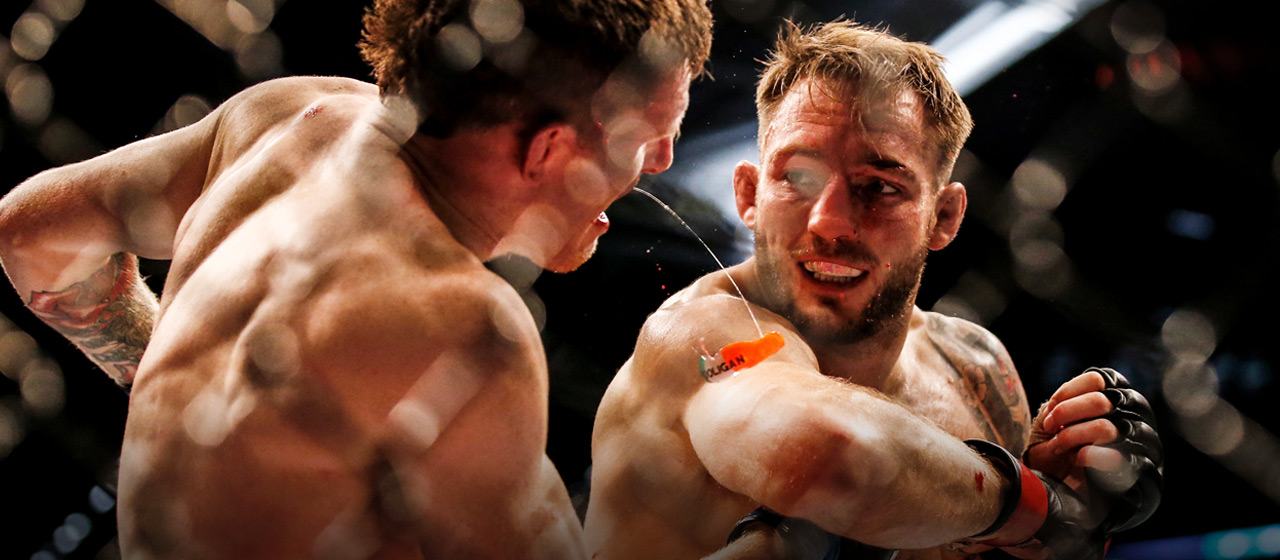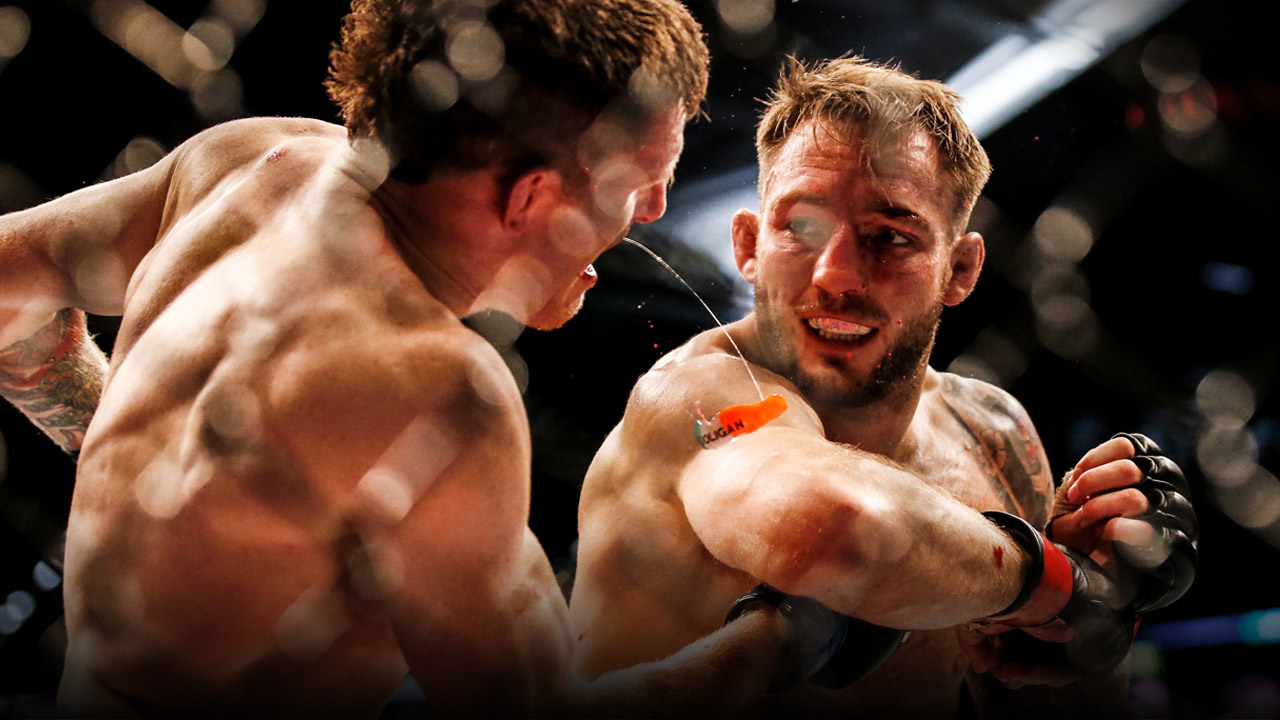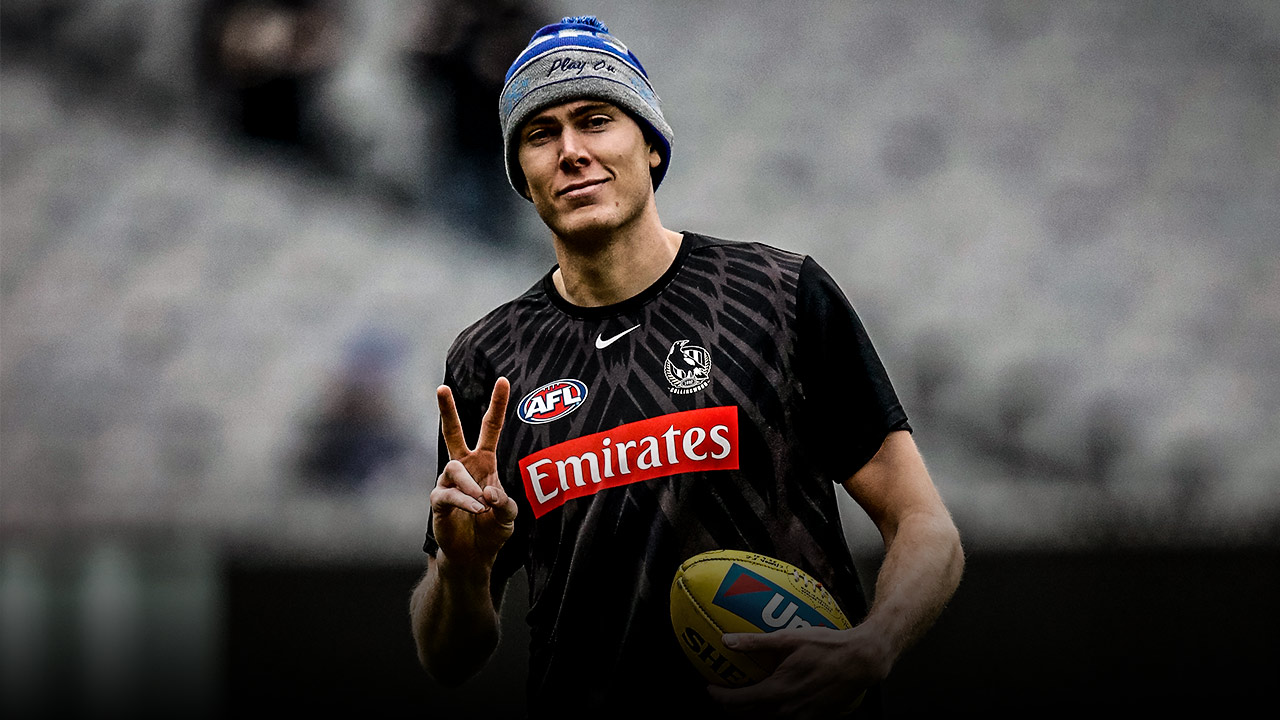UFC
How an earthquake made me
I was sitting on the couch at my parents’ place in New Zealand, when all the windows in the house suddenly blew out, spraying glass everywhere.
It was like a bomb had gone off.
I looked outside and saw the water in the pool blast up in the air, way above the roof. Everything shook so hard that I fell off the couch and bounced around on the floor.
The earthquake didn’t last long, but it was incredibly violent.
That was my experience of the national disaster that struck my hometown Christchurch in 2011, when I was 19. It was a horrible time, as 185 people lost their lives.
It cost us our family home which was decommissioned, or ‘red-zoned’ as it came to be known in the city. That was a massive stress for my parents, who spent years trying to sort out their insurance while they lived in a broken house. In the end, it took five years for them to get their money.
Honestly though, a lot of people had it worse than us. The earthquake wrecked the foundations of pretty much every building in the city, so everyone was impacted in some way.
A lot of people stayed to rebuild, but after losing my job and the gym that I trained at, I decided to make the move up to Auckland for a fresh start instead.
That’s why I’ve taken on the nickname ‘Quake’, as a tribute to Christchurch and the origins of my MMA career. Because if it wasn’t for that earthquake, my life would have turned out very differently.
I never would have met my coach, Eugene Bareman. I wouldn’t have become teammates with great guys like Israel Adesanya, Dan Hooker and Kai Kai Kara-France. I wouldn’t have travelled through Asia, fighting in the most incredible places.
If it wasn’t for the 2011 earthquake in Christchurch I wouldn’t be where I am today, fighting professionally in the UFC.

The upside of breaking your leg
One thing I have in common with my Australian teammate, UFC featherweight champ Alex Volkanovski, is that we both grew up playing football before we fell in love with fighting. That’s probably where the similarities end; Alex was a 100kg front-rower in rugby league, while I was a halfback or centre in rugby union.
Fighting first caught my eye when I was 14, when one of my brother’s friends told me about Muay Thai. I started looking up videos on YouTube and discovered a bunch of the famous K1 Kickboxers like Buakaw Banchamek. I was blown away by what those guys could do.
I decided to head down to the local gym in Christchurch, to see what it was all about, but it took me a few attempts to get past the front doors. The guys who trained inside were pretty beasty, smashing pads, and I found it a little intimidating to be honest.
One day I was looking in through the windows and someone came up the stairs behind me. It was too narrow in the doorway, so I had no choice but to step inside.

I started going to classes and that’s where it all started for me. By the time I was 18, fighting had pretty much overtaken my love of rugby.
In my first year out of school I was playing colts for a club called Sydenham, which was a good level for my age, when my allegiances were put to the test. I was booked to fight for an amateur title around the same date as the rugby grand final.
In the end, I didn’t take part in either.
Someone grass-cut me in a game three weeks before the fight, when they dived low at my ankles and my sprigs got stuck in the ground. My leg completely snapped, and I had to get two plates and some screws put in to fix it.
The only upside of that is I can no longer feel that part of my leg, which is good for fighting!
Breaking my leg was a real turning point for me. I realised I was more gutted that I couldn’t fight for the title than I was about missing the rest of the rugby season.
And that’s when it clicked for me; I wanted to be fighting fulltime.
Once my leg was recovered, I took out a loan and travelled over to Phuket in Thailand with a friend, to train three times a day at Tiger Muay Thai. By the end of that incredible trip, I was completely hooked.

‘Someone tipped off the police’
After moving to Auckland in 2011, I joined a gym called City Lee Gar where I began training with guys who had fought in K1 Max, who were eight or nine years older than me and former world champions.
It made me realise how much further I still had to go.
I was also doing conditioning sessions at City Kickboxing, which is where I met Eugene and Israel. Eugene wasn’t really coaching me back then, as I was actually fighting a couple of his guys, but it was the beginning of our partnership.
I fought guys around Auckland in Muay Thai and kickboxing, before a promoter brought over an international team from China. I beat all of them, including this one guy who put his hands down during the fight and challenged me to punch the shit out of him. I still couldn’t knock him out. It was wild.
Those wins got me the opportunity to go and fight in China with Israel, working for the same company. But it was hard to be a fulltime fighter out of New Zealand back then, so I made the decision to move over to Thailand and base myself out of Tiger Muay Thai.
I lived and worked in Thailand for four years, fighting on the Asian circuit. Some of the places we visited really made me realise how spoilt we are in the western world.
In China, you discover very quickly that you are dispensable. You can be replaced at the click of the fingers and there are always other fighters waiting for the opportunity.
We used to get to the stadiums six hours before the show started just in case. I’d be lying there on the hard floor trying to snack, waiting. Then I’d wrap my own hands, do some shadowboxing to warm up and go out and fight. You learn how to adapt and survive.
For one fight in Beijing we stayed about an hour’s drive outside the city, in the countryside. We were in this random hotel where you couldn’t even buy water; you had to ask for someone to drive miles away to get it for you. The food was pretty bad as well, making everyone sick in the stomach.
We were fighting on tourist visas and got paid under the table, but someone had tipped off the police. On the day of the fight, officials came to our room and told us that our visas had to be changed.
They drove us into the city, to the New Zealand embassy, where we waited for five hours to get work permits. Then they drove us back to the hotel, gave us some rice for dinner and 20 minutes later we were at the stadium, fighting.
Stuff like that became normal, but we discovered they weren’t the biggest problems in the world. You still got to fight. Still got paid. Still got to travel.
Once you’re in the ring, it’s all the same. Except for when you’ve got the shits, then you’re in a fair bit of trouble.
More about: Israel Adesanya | MMA | New Zealand | Resilience






 Load More
Load More